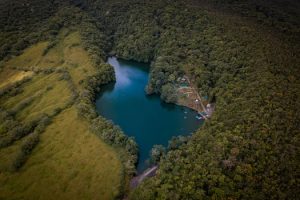Hyper-Personalization: Trips Tailored to Your DNA and Preferences
The world of travel has shifted and evolved over the years, adapting to the changing needs and preferences of travelers. From backpacking adventures to luxurious getaways, the options are endless. However, in recent years, there has been a noticeable shift towards a more personalized travel experience. With the rise of technology and data-driven insights, travel companies are now able to offer hyper-personalized trips tailored to individual DNA and preferences. This cutting-edge approach to travel is not only changing the way we explore the world, but it is also revolutionizing the entire industry.
The Rise of Hyper-Personalization in the Travel Industry
In today’s digital age, the travel industry has access to a vast amount of data and technology, allowing companies to cater to the unique needs and desires of each individual traveler. Hyper-personalization is the process of using data and technology to create tailored experiences for customers, making it one of the hottest trends in the travel industry.
With the emergence of social media and online platforms, consumers are now demanding more personalized experiences. Travelers want to feel like they are the only ones experiencing a destination, rather than following a generic itinerary. They want their trip to be an extension of their personality, and this is where hyper-personalization comes into play.
By leveraging data such as travel history, social media activity, and online behavior, travel companies are now able to create customized trips that revolve around an individual’s unique preferences and interests. This level of personalization goes beyond the typical demographic information, allowing for a truly one-of-a-kind travel experience.
The Power of DNA-Based Travel
One of the most exciting developments in hyper-personalized travel is the use of DNA analysis to create tailored trips. The concept of DNA-based travel involves analyzing a person’s genetic makeup to understand their predispositions and preferences. This information is then used to create a personalized itinerary that aligns with the individual’s interests and needs.
For example, if an individual has a genetic predisposition towards adventure and thrill-seeking, their DNA-based travel experience may include activities such as bungee jumping or skydiving. On the other hand, someone with a genetic predisposition towards exploring new cultures may have a trip curated to immerse them in the local customs and traditions of a particular destination.
The Benefits of Hyper-Personalized Travel
The rise of hyper-personalized travel has brought about numerous benefits for both travelers and the industry as a whole. For travelers, it means a more seamless and stress-free travel experience. With everything tailored to their needs and interests, they can focus on enjoying their trip without the worry of planning and organizing.
Moreover, hyper-personalization allows for more authentic and meaningful experiences. Gone are the days of cookie-cutter itineraries, with travelers now able to immerse themselves in the local culture and truly connect with their destination.
On the industry side, hyper-personalization has led to increased customer satisfaction and loyalty. By understanding their customers on a deeper level, travel companies can offer more targeted and relevant products and services, leading to higher levels of customer satisfaction. This, in turn, can drive repeat business and positive word-of-mouth recommendations.
The Future of Travel: Fully Customized Trips
As technology continues to advance and data becomes more readily available, the future of travel is looking more and more personalized. It is not far-fetched to imagine a world where every trip is fully customized to an individual’s DNA and preferences.
Travel companies are already exploring innovative ways to incorporate technology into the travel experience, such as virtual reality tours and AI-powered travel assistants. These advancements, combined with the increasing understanding of DNA and genetics, will pave the way for fully customized trips that cater to every aspect of a person’s personality and preferences.
In Conclusion
Hyper-personalization is transforming the travel industry, offering travelers a level of personalization and authenticity like never before. With the use of data, technology, and even DNA analysis, travel companies are now able to create tailor-made experiences that cater to individual interests, needs, and preferences. As we look towards the future, it is clear that hyper-personalization will continue to play a crucial role in enhancing the travel experience for all.










